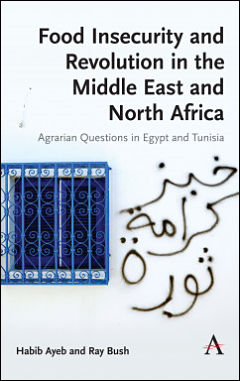Toward a Model of Food Sovereignty in Egypt and Tunisia
DOI:
https://doi.org/10.5304/jafscd.2020.094.039
Keywords:
Food Sovereignty, Agriculture, Farming, Egypt, Tunisia, Political EconomyAbstract
First paragraph:
Food sovereignty,” write Habib Ayeb and Ray Bush, “is a framework and set of policy praxis that prioritises the principle and policies to deliver food as a human right rather than as just another commodity exchanged for cash or kind. People’s survival depends on growing and distributing food, which can only be provided in a sustainable way if it is made part of national and public sovereignty” (2019, p. 150). This insight lands with particular poignancy in the context of the 2020 COVID-19 pandemic, when urban and rural communities across the globe face issues of food access and agricultural laborers are constantly exposed to COVID threats in order to continue supplying consumers with produce (Wozniacka, 2020). Ayeb and Bush’s monograph thus centers around food sovereignty, a concept which advocates for not only access to food, but the ability of producers and consumers to participate in decisions around what is produced and how it is produced and consumed (La Via Campesina, 2003). . . .
Metrics

Downloads
Published
How to Cite
License
Copyright (c) 2020 The Author

This work is licensed under a Creative Commons Attribution 4.0 International License.
The copyright to all content published in JAFSCD belongs to the author(s). It is licensed as CC BY 4.0. This license determines how you may reprint, copy, distribute, or otherwise share JAFSCD content.













